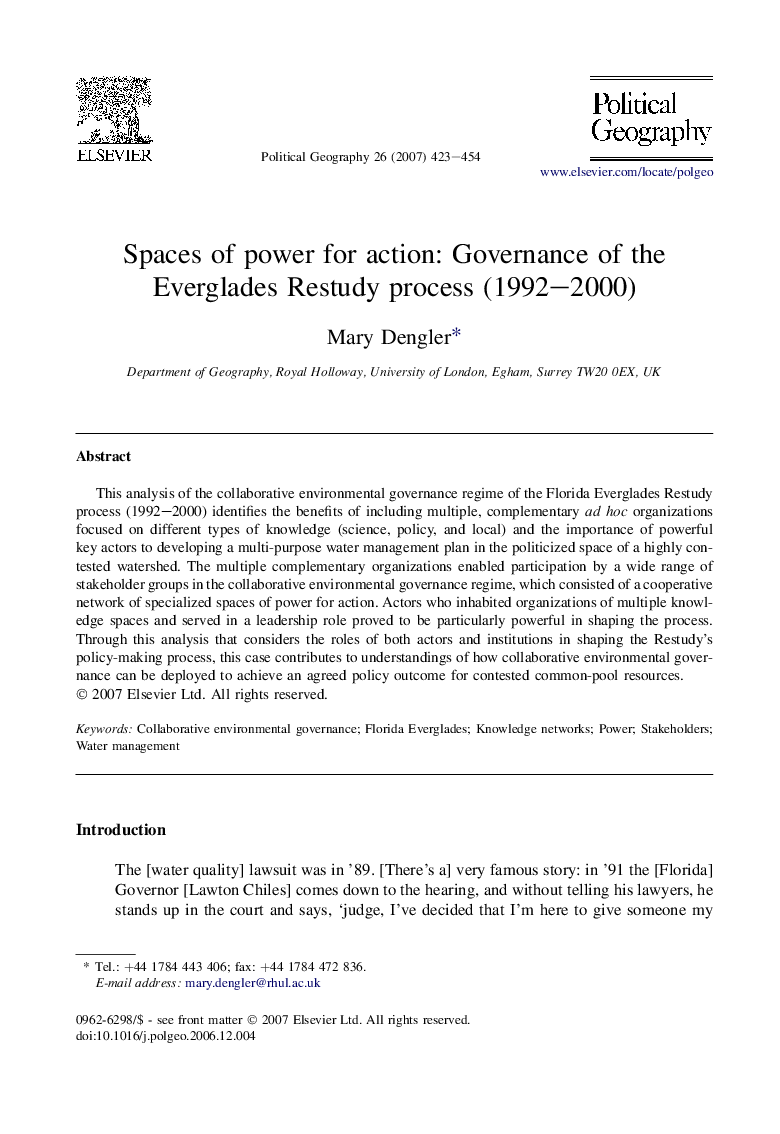| Article ID | Journal | Published Year | Pages | File Type |
|---|---|---|---|---|
| 1062381 | Political Geography | 2007 | 32 Pages |
This analysis of the collaborative environmental governance regime of the Florida Everglades Restudy process (1992–2000) identifies the benefits of including multiple, complementary ad hoc organizations focused on different types of knowledge (science, policy, and local) and the importance of powerful key actors to developing a multi-purpose water management plan in the politicized space of a highly contested watershed. The multiple complementary organizations enabled participation by a wide range of stakeholder groups in the collaborative environmental governance regime, which consisted of a cooperative network of specialized spaces of power for action. Actors who inhabited organizations of multiple knowledge spaces and served in a leadership role proved to be particularly powerful in shaping the process. Through this analysis that considers the roles of both actors and institutions in shaping the Restudy's policy-making process, this case contributes to understandings of how collaborative environmental governance can be deployed to achieve an agreed policy outcome for contested common-pool resources.
